#occupy parliament
Explore tagged Tumblr posts
Text

This is the revolution. ✊🏿🇰🇪
#fuck the government#fuck the politicians#fuck the police#occupy parliament#rejectnotament#rejectfinancebill2024#genzke#revolutionke#kenya
7 notes
·
View notes
Text
Watch "Reject finance Bill 2024" on YouTube
youtube
0 notes
Text
#united nations relief and works agency for palestine refugees in the near east (unrwa)#unrwa ban in israel#refugees#palestinian refugees#israeli parliament#united nations#gaza#west bank#occupied palestine#humanitarian aid#east jerusalem
9 notes
·
View notes
Text
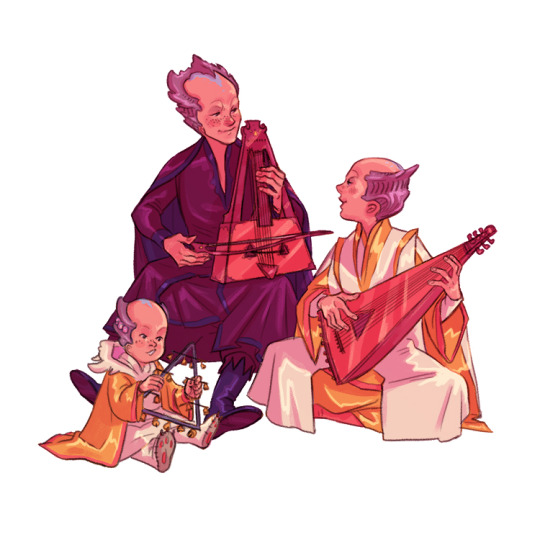
a bby branmer with his parents, kedrunn and eiyamer (both ocs). they're both musicians so i had fun designing some absurd minbari instruments for them that probably would be extremely impractical in real life (the minbari dedication to the triangle aesthetic always cracks me up)
#babylon 5#b5#minbari#branmer#minbari ocs#yes i am weirdly obsessed with the guy who is like... a coffin in one ep lol#i just think he occupies an interesting space in minbari worldbuilding!#one instrument is based on a crwth#and the other started out based on a psaltery and quickly turned into something different#in parliament of dreams (i think) the minbari have psalterys#which they are plucking despite being the bowed kind!#i can only assume some of the production team walked into a music shop and saw a bowed psaltery and were like 'JACKPOT' ahaha#and ofc the triangle branmer is playing with is one that pops up whenever the show calls for some ritual shaking of bells#idek what that is#maybe they made it special for the show???
76 notes
·
View notes
Text
#We can’t even recognise our First Nations People’s with a voice to parliament referendum#& now y’all wanna condemn the action’s causes & affect of another group occupying another’s land?#very hypocritical of you#how bold of you#free palestine#and fuck the Australian government
2 notes
·
View notes
Text
he worst is yet to come? - un special rapporteur francesca albanese at the european parliament
A public hearing was held on April 9th at the European Parliament on the ongoing genocide in Gaza, and the failure of EU Member States and institutions to meet their obligations to prevent it. The full event is available here: • Francesca Albanese (United Nations Special Rapporteur for Human Rights in the Occupied Palestinian Territories) • Daniel Levy (President of US-Middle East Project, former…
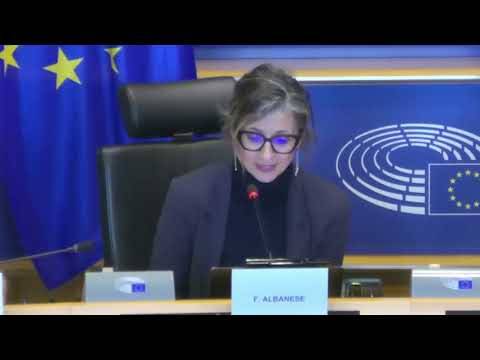
View On WordPress
#Daniel Levy#Diana Buttu#European Parliament#Francesca Albanese#Francesca Albanese (United Nations Special Rapporteur for Human Rights in the Occupied Palestinian Territories)#Gaza#genocide#genocidio#Onu#Palestina#Parlamento europeo#Special Rapporteur for Human Rights#UNO
0 notes
Text
Reaction from Kurtulmuş to Greek Cypriot representative: “The occupier in Cyprus is the Greek Cypriot side” The Speaker of the Turkish Grand National Assembly of the Republic of Türkiye Numan Kurtulmuş attended the European Conference of Presidents of Parliament in Dublin, capital of Ireland. Continue reading Untitled

View On WordPress
#Cyprus issue#Dublin#European Conference of Presidents of Parliament#Greek Cypriots are the occupiers#Numan Kurtulmus#Speaker#statement#Turkish Grand National Assembly
0 notes
Text
Everything I found in Szarr's palace, for all your fanfiction-writting needs. I haven't found any other post like this one, so i hope i m not copying anyone. Posting it here, because editing the official wiki feels intimidating. Feel welcome to add anything I missed.
Astarion's siblings (the other spawn):
Petras - one of the two you meet in the Flophouse.
Dalyria - the other one from the two you meet in the flophouse. Her diary can be found in the "guest room". Before Cazador turned her, she was a doctor, a "Physician General to the Parliament of Baldur's Gate". She thinks vampirism is a disease and plans on curing herself of it by drinking blood of someone young and healthy - other spawn's daughter, Victoria.
Leon Onufrio - before Cazador turned him, Leon was a sorcerer. He is the one whose daughter's (Victoria's) body is found, cursed, in the room where with the Kozakuran dictionary.
Leon put a protective counter-curse on her, to discourage other spawns from attacking her. Despite his efforts, Dalyria bit her, hoping it'd cure her vampirism. Needless to say, it didn't and Victoria died @easterlingwanderer found out that if you use "speak with the dead" on the body, it turns out that it was a random urchin and Leon did get Victoria out of the city on time. After removing the curse inflicting you with necrotic demage, you can loot a letter of her body from her father instructing Victoria to read said dictionary, so she can freely move around the castle.
In the favoured spawn room, you can learn that Leon was the one usualy occupying it (along with his daughter). His diary reveals that he put extra effort to be Cazador's best hunter, so he can keep Victoria away from others and that he came up with a plan with Figaro to disguise and sneak Victoria out of the palace.
He also notes that he doesnt like the way Violet looks at Victoria and Cazador's wicked smile, when Leon asked him what his master was planning to do with his daughter.
Violet - you can find her Diary in the Dormitory of Spawn. She notes that she put garlic in Yousen bed as a prank.
Aurelia - a tiefling
Yousen - @neophytepagan noticed he is a gnome
Other:
The chamberlain of Cazador was Antwun Dufay. In his diary, which can be found under his bed in his room after a successful passive perception check, it says that he had a lover Lurianna (a werewolf, who can be found dead by walking through fake north wall of chamberlain's office, or through another fake wall in Chamberlain's private room). He knew about Cazador's Black Mass enough to fake his death in order to avoid the threat of taking Astarion's place. Unfortunately for him, it seems he confused the actual death potion and fake death potion, and really died. His lover drank the other potion, which melted her guts. The actual fake-death elixir can be found in his desk, which puts the player in 10-turn coma. He ordered the elixir from Bonecloaks', where he also ordered most of the things the palace needed to function (like bloodstain remover, candles and food for "guests").
Godey - Cazador's right hand. Astarion says that while Cazador was the master of the palace, the kennels (the room where the spawn d be tortured, when they did something Cazador didnt approve of) was the domain of Godey. Godey tortured the spawn when Cazador didnt feel like it. Cazador trusted Godey with the key to the sealed ballroom for the duration of the ritual.
Through the palace, fanatic-servants cleaning the palace: Syrin - human, Greenfern - wood half-elf, Vilhelm - human, Varderola - also human. All of them are servants, who Astarion said are devoted to Cazador and came to the palace of their own will, beggining Cazador to turn them into vampires. Vilhelm is most noteable, as you can talk to him and he asks Astarion why isn't he downstairs, that he is late and the ballroom is already locked. If pressed, he informs that Godey has a key and that the Cazador is going to punish Astarion for missing the ritual (and from his expression, he seems to quite like the thought).
Chamberlain Dufay wrote a blooddonnors ledger, instructing the Spawn to favourite the lower class as prey, as too many missing patriars may drow too much attention.
The language Cazador uses is Kozakuran, from a distant land of Kara-Tur. Astarion notes that they were strictly forbidden from learning it. From Cazador's Journal you can learn that Astarion was not an unreliable narrator when he said Cazador liked torturing him the most: Cazador paid the most attention to him in the journal.
In the favoured spawn room, there is a ledger with the list of spawns who have been favoured (its only Leon and one time Violet).
Amanita Szarr - on her 13th birthsday, invited by her Uncle Cazador. She was invited to the ballroom. She became a vampire, but was not happy about it. She rejected her family name Szarr and named herself Lady Incognita. She claims she stays in the attic and writes stories. One of the books written by her can be found on Cazador's desk.
Mrel Alkam - vampire mastress from Athkatla that Cazador wrote a letter to.
#astarion#baldur's gate 3#bg3#spawn#astarion's siblings#cazador szarr#cazador#fanfiction#godey#astarion x tav#resources#astarion ancunin#lore#chamberlain dufay
5K notes
·
View notes
Text
"oh the special forces occupying parliament when martial law is declared is just the standard procedure we should stay home and wait for orders from The Authorities"
The only reason why the United States hasn't become a military dictatorship is because so many people actually believe this and the state supports the military without question so there's no need for them to take over. The moment some guy in uniform has the bright idea of taking power and suspending the constitution like it has happened to us so many times people will be lining up to suck his dick because SUPPORT THE TROOPS
493 notes
·
View notes
Text
Some background on South Korean politics in light of the 12.3 self-coup attempt
At 10:23 PM on 12.3, President Yoon Suk-yeol (Yun Seokyeol) declared martial law. The Korean people and MPs immediately mobilized to stop it. Although a group of special forces stormed the Parliament building and tried to break up legislative activity, 190 MPs made it into the chamber and voted only two hours later to rescind martial law. Soon after that, Yoon agreed to end martial law and the military officially stood down.

This was a bizarre and shocking few hours for everyone in the country and the world, and how Yoon got to the point of making this absurd decision is an interesting story. To tell it, I'll try to explain 1) South Korea's history of military rule, 2) Yoon's prosecutorial and political career, 3) the main opposition Together Democratic Party, and 4) Yoon's presidency. And finally, 5) what the self-coup attempt means for South Korea and the world.
I'll try to be brief as I can, but I'm starting from the assumption that most people know very little about South Korean politics. So, it's a long post.
Military rule
After fascist Japan surrendered at the end of WW2, it handed over power in the occupied Korean peninsula to an indigenous government called the People's Republic of Korea. Unfortunately, the new government was brutally suppressed by the US military in the South and warped into unrecognizable form by the Soviet Union in the North. In the South, the Republic of Korea was established as a US-aligned anticommunist dictatorship. Everything in this summary is extremely simplified, but suffice it to say that the Republic of Korea, or South Korea, more or less remained an anticommunist military dictatorship until 1987.

(One of the less graphic pictures of the Bodo League massacre, where the South Korean police and military killed 200,000 civilians)
Military rule in South Korea was founded on protecting South Korean capitalists, many of which had accumulated their wealth under the Japanese occupation, from the dual threats of leftists in South Korea and North Korean attack. South Korea retained the vast majority of colonial police employed by the occupation government, whose main purpose had been to root out and destroy independence guerillas, and repurposed them to root out and destroy left-wing guerillas (many of which were the same people). This caused an extraordinary level of state violence in early South Korean history. The South Korean prosecution service was similarly used to find and imprison or kill the opposition. Due to their function as part of an authoritarian state, the prosecution service was given broad powers to both investigate and prosecute.
Especially after President Park Chung-hee (Bak Jeonghui) took power (by overthrowing another short-lived democratic government), the South Korean state's purpose became not only to protect capital, but also to direct its expansion. The South Korean state used its control over credit to make companies invest in sectors that it predicted would have great export potential. Once a company established itself in a sector, the state directed it to use the profit it got from exports to invest in another, more capital-intensive sector. Over decades, this strategy led to enormous economic growth for South Korea and a massive rise in living standards. It also caused a few companies in particular to become fantastically wealthy global megacorporations. These are the chaebols (jaebeol), which include Samsung, Hyundai, LG, and others.
By 1987, a series of massive democratic protests and uprisings finally ended the dictatorship. A free election was held, and a general named Noh Tae-woo (No Taeu) was elected president. In the new democratic era, the conservative movement was formed as an alliance of dictatorship figures like Noh, chaebols, small businesses, and white collar workers who wanted to continue the economic policies of the dictatorship. The democratization movement continued as various incarnations of the Democratic Party (South Korean political parties change names and split and merge constantly), made up of unions, civil society activists, and students. Leftists have continued to be a minor force in South Korean politics, but for the purposes of this post I'll mostly set them aside. The main groups we're concerned with are conservatives and democrats, organized into a constantly shifting mush of political parties.
Supreme Prosecutor of the Republic
Before he became president, Yoon Seok-yeol was the Supreme Prosecutor of the prosecution service. To understand the significance of this, we have to take a look at the prosecution service in the democratic era and the political environment that Yoon emerged into.
During the dictatorship, everyone hated the police. So after the dictatorship, South Korea thoroughly reformed and defanged the police. This was a genuine success of the democratization movement. The police were turned from a gang of brutal thugs into an organization that almost never uses guns and is known for getting yelled at and beaten up by random citizens. If you hit a South Korean cop, the cop might be punished for annoying you. (Though the situation is different for ethnic minorities and striking workers.)
On the other hand, the prosecution service was left mostly untouched. While it obviously was no longer used for open political repression, it largely retained its broad investigative powers and personnel.
To put it simply, the prosecution service is an authoritarian holdover inside a democracy. It justifies its powers by being a hammer against the most powerful members of society. In South Korea, it's common for politicians of all parties to have their houses raided or be put in prison. This happens regularly even to former presidents, and even to some of the wealthiest people in the world, the heads of the chaebols. These things are unthinkable in most Western democracies. Whether you think these powers are justified or not, they've led to the prosecution service having far more active influence over politics than prosecutors in most democracies. As far as the prosecutors were concerned, that made them the heroes of this story.
These things came to a head in 2016 with conservative President Park Geun-hye (Bak Geunhye). Due to a series of massive scandals, Park had become extremely unpopular, with her approval rating hovering at 30 percent. What put the nail in the coffin for Park was an investigation by a prosecutor named Yoon Seok-yeol. Yoon exposed bizarre corruption involving President Park, Samsung, and a cult that had been involved with her family since the presidency of her father, Park Chung-hee. This led to massive protests and Park Geun-hye's impeachment.
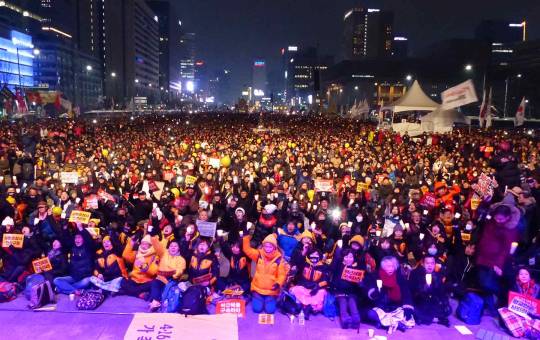
(2016 Candlelight Protests)
The president who succeeded Park, Moon Jae-in, promoted Yoon within the prosecution service. At his new position, Yoon prosecuted and imprisoned Park, as well as another conservative former president. At this point, he was becoming a major public figure, popular among democrats and hated among conservatives. So President Moon promoted Yoon again, this time to Supreme Prosecutor of the entire service.
And then, Yoon started investigating Moon's own justice minister. This led to a public dispute. Moon's government looked corrupt and hypocritical, and Yoon became more popular than ever. Soon, Yoon resigned his office and entered the conservative presidential primary.
Of course, conservatives welcomed Yoon's entry, and he won the primary and the presidency. But how did they go from hating him for destroying their president to fighting to get him elected? How did Yoon go from prosecuting a corrupt conservative to being one?
The reason for the switch from Park to Yoon lies in their political brands.
Park Geun-hye's brand was built on nostalgia for her authoritarian father. Many older South Koreans associate Park Chung-hee's regime with stability, rational economic management, and anticommunism. At the same time, even most conservative voters hate actual authoritarian behavior. All South Koreans have either lived under military dictatorship or have heard from their family what it was like, and almost nobody is eager to return. Once Park Geun-hye's corruption and inept attempts at election manipulation were revealed, she was finished.
This is why conservatives welcomed Yoon Suk-yeol into their party: they needed him to wash their hands of corruption. He was a rebirth of authoritarian discipline made acceptable by his prosecution of unpopular conservatives. His message was law and order: if we lock up the corrupt, criminals, and communists, the country can be saved from ruin. If we push workers harder (by increasing work hours), economic growth will continue. If we push women harder (by forcing a return to traditional gender roles), the birth rate will return to normal. And, of course, the chaebols should be deregulated and given tax cuts.
Together Democratic Party
Before we pick things back up with Yoon, his main opposition is worth a look. This is the Together Democratic Party, which along with other opposition parties blocked the declaration of martial law and is now pushing for Yoon's impeachment.
We can summarize the Democratic Party's traditional and typical outlook in the figure of President Moon Jae-in (Mun Jaein). This was Park Geun-hye's main rival and the president who promoted Yoon Seok-yeol. He can be considered something like the "Korean Barack Obama". He was liked by democrats and called a dangerous communist by conservatives, but he didn't do all that much in reality other than raising the minimum wage, reducing the workweek, and attempting diplomacy with North Korea. He is now generally liked because things felt normal, he handled the COVID-19 pandemic well, and he didn't make any earth-shattering mistakes. He's the only living president not to be imprisoned after leaving office.
For decades, the Democratic Party was this type of moderate reformist, center-right party. However, in just the past few years, the party has gone through a considerable transformation.
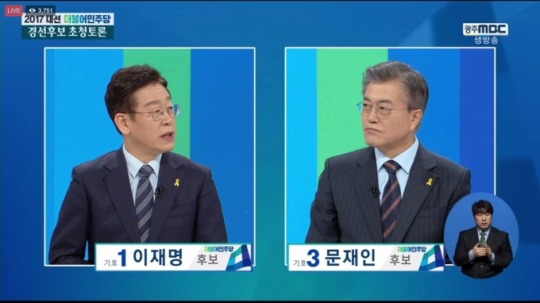
(A 2017 Democratic presidential primary debate, with Lee on the left and Moon on the right.)
The Democratic Party has now unquestionably become the party of a person named Lee Jae-myung (Yi Jaemyeong), who was elected party leader in 2022. He's been called the "Korean Bernie Sanders", and this label is at least somewhat accurate.
Like Bernie Sanders, Lee Jae-myung can be characterized as a radical social democrat. His policies could actually be characterized as more radical than Bernie Sanders'. As the governor of Gyeonggi Province, Lee introduced a youth basic income and experimented with universal basic income. As a national political figure, Lee pushes for what he calls his "Basic Society" policies. These include universal basic income, youth basic income, universal basic housing (by massively expanding public housing), expanding free healthcare coverage to nursing, free meals for seniors, and a four day workweek. In general, Lee criticizes means-tested welfare and advocates for universal programs that guarantee a baseline standard of living by right.
On the other hand, Lee could also be characterized as less radical than his policies would imply. A common criticism, which ironically comes from both conservatives and leftists, is that he doesn't often talk about how to pay for his policies. Conservatives see this as a sign of irresponsible populism and economic illiteracy, while leftists criticize him for not naming the enemy. Unlike Bernie Sanders, Lee doesn't rail against chaebols or inequality or push for taxes on the rich. He also tends to appeal to questionable technology like AI rather than collective action. So although Lee champions some genuinely radical policies, he certainly isn't a socialist.
Lee's public image is also quite different from someone like Bernie Sanders. Lee is generally seen as a figure of questionable morality due to a constant conveyor belt of personal scandals and corruption allegations. He has been accused of, among other things, abusing his staff, having his brother involuntarily committed, illegally sending money to North Korea using an underwear factory, and having connections to organized crime. Lee's personal legal controversies have been the greatest source of instability for him and the Democratic Party since he became its leader.
In fact, Lee was recently convicted of lying while campaigning in one of his trials in November. Due to now having a criminal conviction, he is technically barred from running for office again. However, the conviction could still be overturned on appeal and recent events have really thrown everything up in the air. And even if Lee himself can't run for office, his ideology has taken over the Democratic Party and it's likely that whoever succeeds him will share it.
So, Lee Jae-myung is the nemesis that Yoon Seok-yeol has been fighting for his whole presidency. A criminal versus a prosecutor. Universalism versus austerity. Relief versus discipline.
Yoon Suk-yeol's presidency
Finally, we return to President Yoon. Though even as a prosecutor he was a figure of questionable intelligence, as a politician he's revealed himself to be one of the most inept people in modern history.
Since the beginning of his term, Yoon has been unable to do nearly anything at all domestically. The Democratic Party already had a majority in Parliament at the beginning of his presidency, and so Yoon has been unable to enact literally any part of his legislative agenda. Instead, he was reduced to calling young people lazy, bemoaning the far too short workweek, and wishing he could cut welfare.
In April of 2024, parliamentary elections were held. Lee Jae-myung, Democratic party leader, used the primary process as an opportunity to purge the party of centrists. Despite the Democratic Party's parliamentary candidates being further left than they'd ever been, opposition parties expanded their hold over the Parliament and nearly won a supermajority. After their victory, Lee Jae-myung was reelected as party leader and Basic Society advocates were elected to every seat on the party's supreme council. The Democratic Party emerged more left-wing, more ideologically unified, and more powerful than it ever had been before.
Now that Lee's Basic Society ideology had consolidated its hold on the Democratic Party and the Parliament, the Parliament began trying to pass its agenda in earnest. The Parliament passed bills establishing an experimental UBI, preventing companies from suing workers for striking, and expanding labor protections to subcontractors, among others. Over and over, Yoon vetoed them. Yoon has vetoed 19 bills and pocket-vetoed 4 more, more than every other South Korean president combined.
Both Yoon and the Parliament accused each other of being obstructionists. The problem for Yoon was that the Parliament's policies were popular, while his policies were unpopular. As Yoon issued more and more vetoes, his approval rating only fell.

(A political cartoon by Bak Sunchan depicting Yoon as a lame duck saying "veto")
Without the ability to change domestic policy, Yoon put all of his energy into foreign policy. Due to their history and composition, conservatives want to maintain trading links with other developed countries and developing countries for the chaebols to export to, want to maintain anticommunist alliances with the US and Japan, and are hostile to North Korea. (Participation in this system is what led the South Korean military to commit atrocities in Vietnam.) Democrats are somewhat skeptical of both the US and Japan, and want reconciliation with North Korea. Yoon has been strengthening relations with the US and Japan, sending weapons to Ukraine, and taking a hard line against North Korea.
Although several of these efforts were unpopular, the most significant has probably been Yoon allowing Japan to list the Sado gold mine as a UNESCO World Heritage Site. Before Yoon, South Korea had been blocking this because the site failed to mention the thousands of Korean slaves forced to work in the mine during WW2.
So, the two years of Yoon's presidency had so far consisted of Yoon obstructing popular reforms while failing to pass unpopular reforms and engaging in unpopular war crime denialism. He was generally regarded as impotent, laughable, and annoying. And at the same time, allegations of Yoon's own corruption grew louder and louder.
Yoon's wife is accused of taking bribes and meddling in the conservative primary. Yoon's friend, a Marine Corps officer, is accused of negligence that resulted in a young conscript's death. Yoon is accused of using his friends in the prosecution service to interfere with both investigations. As these scandals grew, the Parliament passed bills appointing special prosecutors independent from the prosecution service to investigate them. Many of Yoon's vetoes were of these special prosecutor bills.
Since the parliamentary elections in April, Yoon has been stuck in a vicious cycle. The Parliament passes popular legislation and Yoon vetoes it. Yoon's approval rating falls. The Parliament passes a bill to investigate Yoon and Yoon vetoes it. More information and leaks about Yoon's corruption come out. Yoon's approval rating falls, eventually to 18 percent. Afraid of the public pressure, more conservative MPs distance themselves from Yoon.
It seemed inevitable that eventually, enough conservative MPs would defect to override Yoon's veto and appoint a special prosecutor. A special prosecutor would find evidence of Yoon's corruption. The public would grow only angrier with Yoon. The only road left would be impeachment and imprisonment, just like Park Geun-hye. Yoon bashed his head against the wall, unable to find a way out.
Clearly, somewhere in this pile was the final straw. On 12.3 at 10:23 PM, Yoon Seok-yeol turned on the camera and vomited blood.
So, what does the coup mean?
The declaration of martial law was so bewildering because it felt like it came out of nowhere. But that's not strictly true; the Democratic Party had been warning that Yoon was plotting to declare martial law for months. Most people dismissed this as a conspiracy theory, including myself. It was simply too far-fetched and illogical to contemplate, until it happened.
But the real reason it felt like it came out of nowhere was because, at the same time, it did. Not even Yoon's most devoted supporters were thinking about martial law. Apparently, everyone from the leader of Yoon's party to the Ministry of Defense to his own prime minister was caught totally by surprise. He circulated no conspiracy theories in advance, and not a single news network attempted to justify his actions. He had no cult of personality and no party ready to fall unquestioningly behind him. In short, he acted essentially alone. As soon as people rose up in defiance, he had no choice but to back down.
It's a good sign for South Korean democracy that the people defeated the self-coup attempt so quickly and decisively. But compare the political environment with that of other countries. How normal has authoritarianism become? How many people openly wish for a dictator? How subservient are the cabinet officials and the news networks? How cultlike are the major parties and how acquiescent is the opposition? These conditions make a country much more vulnerable to a ruler with authoritarian instincts. And we should expect authoritarians to act in creative and unprecedented ways.
The self-coup is an explosion of the authoritarian tendencies that have been bubbling under the surface of the conservative movement since the end of military rule. It's a decisive discrediting of Yoon's prosecutorial brand, which had been conservatism's last hope to maintain the people's trust. Yoon's impeachment and imprisonment are all but guaranteed. And the general consensus among both democrats and conservatives now is that Yoon's blunder has killed conservatism in South Korea for at least the next decade.
In fact, the 12.3 declaration of martial law might really have been a successful self-coup. In that the conservatives have removed themselves from power. And the death of the right is a golden opportunity that Korean leftists must seize. If Lee Jae-myung's Democratic Party becomes politically dominant, it must be challenged from the left to properly name the enemy. If the Basic Society policies become normalized, the left should treat them as common sense and demand more. When people become disenchanted with the democrats, the left must be ready as their competitor and obvious alternative, not the right.
Could South Korea see a new era of competition between a socialist left that wants to finally do away with the chaebols, a social democratic center that merely wants UBI, and a nonexistent right?
Maybe. Probably not. But a new world of possibilities has opened up.
#south korea#yoon suk-yeol#politics#news#12.3#martial law#lee jae-myung#park chung-hee#park geun-hye#korea#moon jae-in#democratic party#authoritarianism#coup#history
261 notes
·
View notes
Text
Europe’s oldest and last remaining Indigenous people are under grave threat as a result of borders, land seizures, construction projects dedicated to the extraction of natural resources and systematic discrimination. Yet, that creeping sense of suffocation has made the Sami reach out to another set of Indigenous people nearly 4,000km (2,500 miles) away, whose fight for survival they identify with: the Palestinians in the Gaza Strip and the occupied West Bank. Their own struggle for Indigenous rights and self-determination has turned the Sami into vocal advocates for the Palestinian cause.
[...]
In front of the Norwegian Parliament on a cold October day, surrounded by hundreds of Palestinian and Sami flags, Isaksen held a mic and performed the “joik”, a traditional Sami song performed without instruments. Her lilting sounds brought the noisy demonstrators to a standstill, carrying a prayer that she hoped would somehow reach the besieged children of Gaza. “I’m physically so far away from them, but I just want to grab them, hold them and take them out of this nightmare,” Isaksen says. “Without trying to compare situations, Indigenous peoples all over the world have stood up for the Palestinian people because our bodies know the pain of being displaced from our homes and forced out of our own lands,” Isaksen says.
[...]
“We live in a settler colonial society,” Holmberg says. “The Sami know how it is to be marginalised and lose our lands. The levels of violence are different in Palestine, but a lot of the underlying mindset is similar. The US and Europe have shown they are not able to fully acknowledge their own colonial history.” Holmberg delivers a stark warning that sounds eerily similar to the voices heard in Palestine. “We are at the edge now. Any more push, and we collapse.”
931 notes
·
View notes
Text
On 26th October and even before that, Georgian Dream patry decided to steal elections in Georgia. The ruling party decided to strip us from our constitutional right to vote anonymously, they decided to steal our future and steer us back towards USSR, our dark past that promises us dark future.
In the last two years GD party has introduced at least two new laws that were used in Russia in past to solidify Putin's regime. Namely Law against foreign influence, that christens every NGO that is financed from abroad as an agent of foreign influence; and law regarding protecting family values and minors that forbids LGBTQ+ 'propaganda', meaning that symbolism associated to it, as well as literature, art or any kind of public expression that somehow informs about or includes non traditional family values, sexual orientation or gender identity is banned. We can no longer read Oedipus King in university, Sappho, Gilgamesh and many more starting from December, sections from cultural anthropology will be banned as well, and it's simply matter of time before critical skills and knowledge will no longer be reachable. This is authoritarian regime, where everything happens on a whim of one oligarch, what he says is a law for lawmakers, his slaves and he himself is subordinate of russian regiment.
Today, just several minutes ago, 'Parliament' declared itself legitimate, even though members of opposition are rejecting their seats, even though the President doesn't acknowledge fairness of elections, even though constitution clearly says that parliament needs at least 2/3 of deputies to do so. If that is not enough, constitutional court currently is discussing legitimacy of all 150 deputies per the Presidents suit, that automatically pauses working of the new parliament according to the constitution.
Georgia needs desperately to be in spotlight right now. Foreign support is all we have, as court, church, police is corrupt. Police keeps breaking up peaceful demonstations, beating up and jailing protesters, court keeps postponing their hearings as they know that the President, only pro-western institute right now, will use her right to pardon them and she wont be able to do that after her term is up in following months.
We've had painful past, full of protests, bloodshed and fighting for our nations survival. That's what being neighbour to Russia means for us. We won't stop fighting for our future and independence, won't let our ancestors sacrifice to be wasted.
20% of Georgia is occupied by Russia. And even today, there are some people, some georgians who prefer occupants claws, false sense of 'security' to fighting for our freedom.
This is not all, there's lot more that's impossible to fit in one post, for example GDPs pre election promises were pretty alarming, their rhetoric is horrendous, words they use are plain manipulative and dehumanising. They have their own pro government media that is brainwashing people and destroying every critical thinking brain cell. I am angry, I am disappointed and tired and so are hundreds of thousands.
Some sources about the situation:
#georgia country#georgia#sakartvelo#democracy#freedom#social demonstrations#europe#social protests#social movements#human rights#pay attention#fuck russia#protests#no to russian law#no to russian government#please reblog#spread information
236 notes
·
View notes
Text

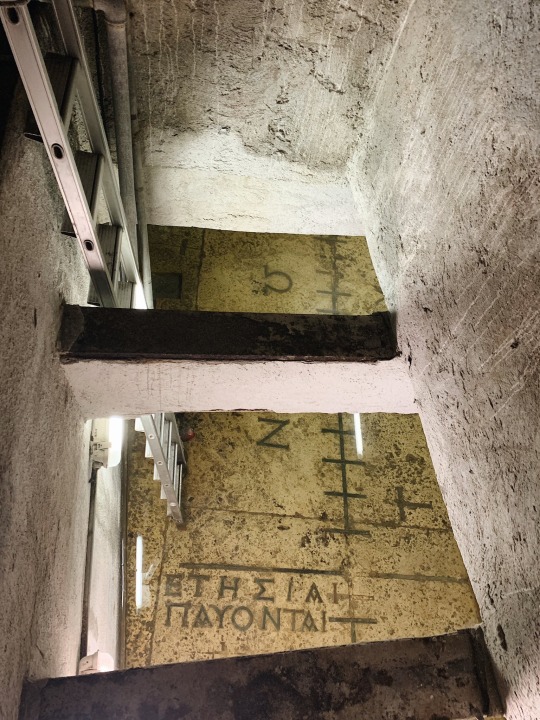
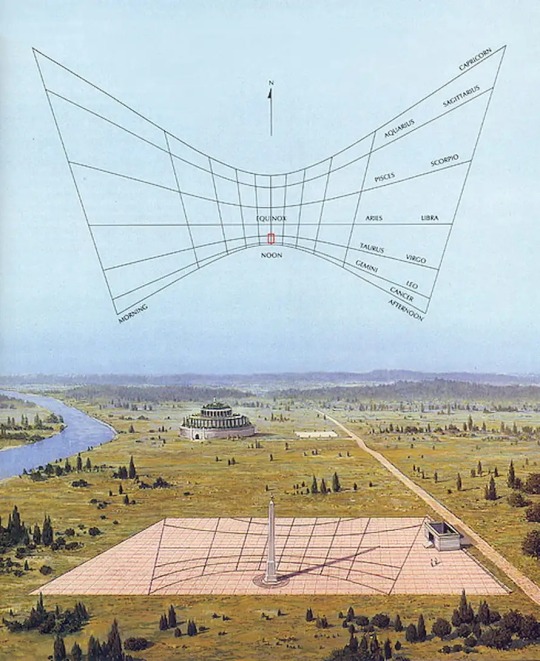

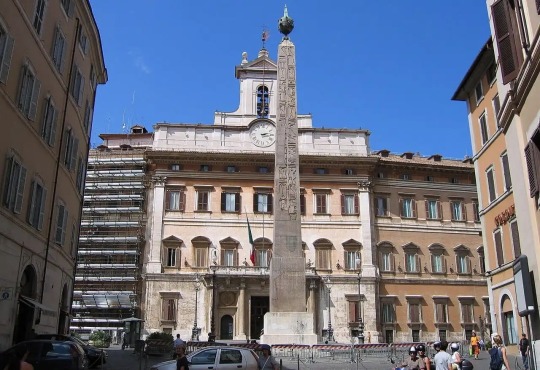
The largest sundial in the entire ancient world: The “Horologium Augusti” or Augustus Sundial, built in the year 10 BC, commissioned by the emperor himself to the architect Facundus Novius.
Solar Clock was built on a large circular square of travertine marble that occupied about 160 m by 75 m and was located on the Campus Martius, between the Mausoleum of Augustus and the Ara Pacis. The gnomon (the element that casts the shadow) was nothing more than a 30 m high red granite obelisk, brought from Heliopolis (Egypt) and which had been erected by Pharaoh Psammetik II between 595 and 589 BC.
It was crowned by a bronze orb or globe and projected its shadow, depending on the position of the sun, on a quadrant with lines and letters of inlaid gilded bronze, which indicated the months and seasons.
It was placed in such a way that the shadow fell on the center of the Ara Pacis on September 23, the birthday of Augustus himself.
The obelisk of the Augustus Sundial stood between the 8th and 12th centuries, when it was broken and practically buried and forgotten. Rediscovered at the end of the 18th century (1748) it was restored and re-erected by Pius VI (1792). Today we can admire it in Piazza de Montecitorio, in front of the current headquarters of the Italian Parliament.
315 notes
·
View notes
Text
It's official, all the pro-EU parties(PSD, PNL, USR, UDMR) are forming a coalition. They'll occupy a majority of the seats in the parliament, so even if the nazi wins, he'll have a strong opposition and he won't be able to do much damage. It seems like they're preparing for the worst case scenario with this move, but honestly, better safe than sorry, since we are facing satan himself.
Let's hope Lasconi wins and when she does we'll throw a party!
134 notes
·
View notes
Text
Aruda and Upa pada and your future spouse (part =1)

Explanation =the concept of padas in jaimini astrology shows 12 Arudas . Arudha means image appearance , ascended. Pada means = a part or portion. Every 12 diffrent padas shows thats house whole information generally all padas shows the impression that's we show the world and our surrounding. Upa pada particularly indicates the psychic projection into "public image" of matters of the private bedroom. Your Upapada or Vyaya Arudha (12th) shows the aura of glamour or bubble of charm which surrounds the native's marriage, as seen by the minds of others and what people believe about the your marriage which may be quite different from what is really going on. You can see anything about your future spouse with this .

Calculation = (1) Take sign containing the house of interest in the divisional chart of interest.
(2) Find the sign occupied by the lord of that house.
(3) Count signs from the house of interest to the sign containing its lord.
(4) Count the same number of signs from the sign containing the lord and find the ending sign.
(5) Exception: If the sign found thus in step (4) is in the 1st or 7th from the original sign in step then we take the 10th sign from the sign found in step.
(6) Check upapada lord in D9 can tell you a lot about marriage sustainablety.
(7) we going to use rashi ( sign ) aspecting ( drishties) here .

Example = This is Bill clinton chart so now you can see his 12 house lord placed in 12H itself .
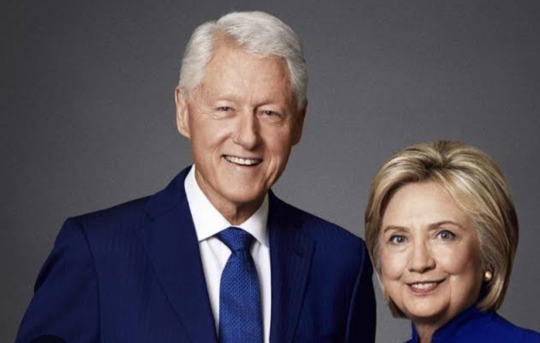
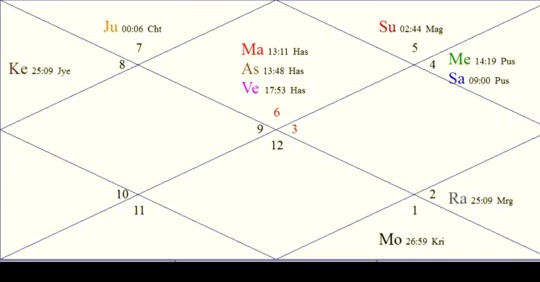

This is chart after we made 12H ascendant after calculation.


1.Sun placed in leo sign which is its own sign so his wife Hillary clinton is can be related to government position and government work because both planet and sign gives strong government position.
2.Hillary clinton studied political science so you can see in second chart 5H lord Jupiter sits in 3H in libra with sun aspecting it as sign drishti so its show sudy related to political science and other reason related to government and power position.
3.Rahu sits in 10H so its shows that career related to public or connection, networking and 4th sign ( Cancer)and plnets Mercury and saturn aspecting it and jupiter as rashi drishti aspecting it so its show political carrer and parliament related job or work connected with public high position.
4. 2H is alway important if you need to know about your marriage life so you can see in 2H mars and venus sitting there but its weak pr debilitated here so venus means a women can cause problems in his married life . But its not going to break because sun is placed good in his D9 chart.

#tarot tumblr#tarotcommunity#vedic astrology#astro notes#vedic astrology observations#tarot reading#astrology#astrology community#astrology observations#vedic astro observations#tarot cards#daily tarot#future spouse chart#future spouse astrology#tarotblr
144 notes
·
View notes
Text
In early 2014, Ukraine was a neutral country, with a pro-Russian president, and with 70% of Ukraine's population against NATO membership. Yet Russia bluntly violated Ukraine's neutrality and annexed Crimea, then launched a covert invasion of Ukraine in the east.
Petro Poroshenko won the presidential election later in 2014 having promised a settlement with Russia, keeping a special status of the Russian language in Ukraine. He was initially sceptical regarding NATO accession, underlined Ukraine must rely on its own strength to provide security.
Did Putin meet Poroshenko halfway? Not at all. The regular Russian army entered the Ukrainian territory in mid-2014 to fight the Ukrainian troops, which led to the Minsk-1 agreement signed in September 2014.
Further text - down under the cut, or you can follow the Twitter link to the original post:
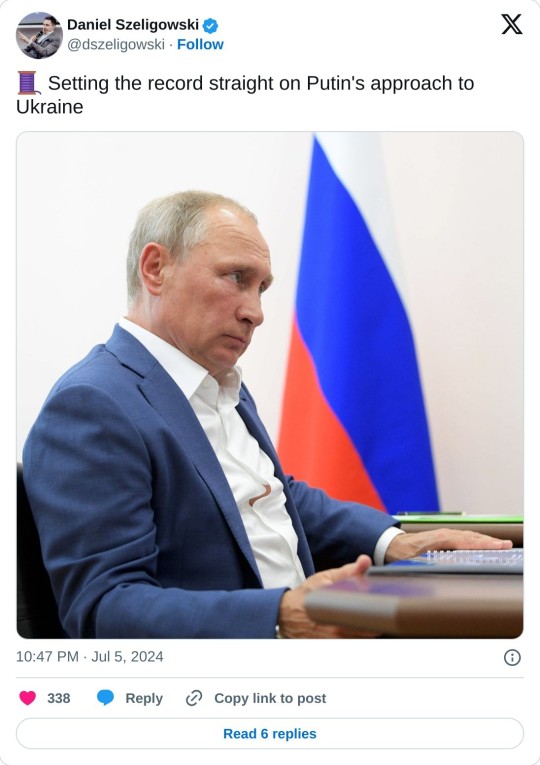
Few weeks later, Ukraine's parliament adopted a law that would guarantee the then Russia-controlled part of Donetsk and Luhansk regions additional economic, financial and cultural powers.
How did Putin react? Russia staged sham local elections in the occupied Donbas, and then sent the regular army again to Ukraine in early 2015, which led to the Minsk-2 agreement signed in February 2015.
Zelensky was even more sceptical regarding NATO accession. Asked about NATO, he once famously said he never pays anyone a visit if he has not been invited. He won the presidential election promising to compromise with Russia - to stop shooting, sit down with Putin and talk.
Did Putin meet Zelensky halfway? Not at all. He actually raised the stakes by issuing the Russian passports on the occupied territories of Ukraine even before Zelensky assumed the office, putting him in a difficult political position since the start.
Zelensky was ready to drop Ukraine's NATO bid in an exchange for the Russian troops withdrawing from Ukraine. The talks were held already before 2022. What did Putin do? He launched a full-scale invasion of Ukraine.
In the first weeks of the invasion, Zelensky was yet again ready to drop Ukraine's NATO bid. But he wanted to obtain international security guarantees. What did Putin do? He demanded that Russia must be consulted before any aid would be given to Ukraine in the event of aggression.
To sum up, Ukraine has consistently tried to reach a deal with Russia over the last decade, and was open to giving up on its NATO bid in exchange for the withdrawal of the Russian troops from Ukraine. Russia never reciprocated, never showed a good will, kept raising the stakes.
Both Poroshenko and Zelensky were initially sceptical regarding Ukraine's accession to NATO. Both wanted to get a deal with Putin. And Putin himself pushed both of them to seek NATO membership out of no other viable alternatives.
Up till now, Putin has shown absolutely no willingness to compromise with Ukraine. His war aims remain maximalist - subjugating Ukraine and changing its regime. He seeks Ukraine's partition, and will turn what is left of Ukraine into Russian protectorate.
Russia's imperial self-conception is that of Russian elites at large, and not just Vladimir Putin. The Russian leadership simply cannot reconcile with the existence of a sovereign Ukrainian statehood.
Therefore any sustainable Ukrainian-Russian compromise is currently not possible unless the Russian cost-benefit calculus changes. Only credible risk to the stability of the Russian regime would impact this calculus. The easiest way goes through defeating Russia in Ukraine.
#russia simply wants all of Ukraine#thats it#its a no-brainer#russia considers Ukraine its own colony that needs to be returned under the rule/protectorate of the 'Russian Empire'#same with Georgia Moldova the Baltic States etc#having not achieved military and political victory in Georgia through small wars#russia used its oil money and spy network to install russia-loyal government in Georgia#now that government passes russia-dictated laws#it cant take on the Baltic States (yet)#leaving Ukraine and Moldova#Georgian scenario didnt fly in Ukraine and Moldova so russia went with war#Ukraine is first simply due to the geographical position#Moldova is currently impossible for russia to attack on land and the sea corridor is veeeeerrrrryyyyy narrow and they'd have to go through#Ukrainian and Romania's waters for it#plus Moldova doesn't border Russia#Ukraine borders Moldova#strategically it makes 100% sense to go through Ukraine first#ukraine#russia#russia ukraine war#russian invasion of ukraine#russia is a terrorist state#imperialism#colonialism#genocide#history#war crimes#russian empire#russian culture#україна
144 notes
·
View notes